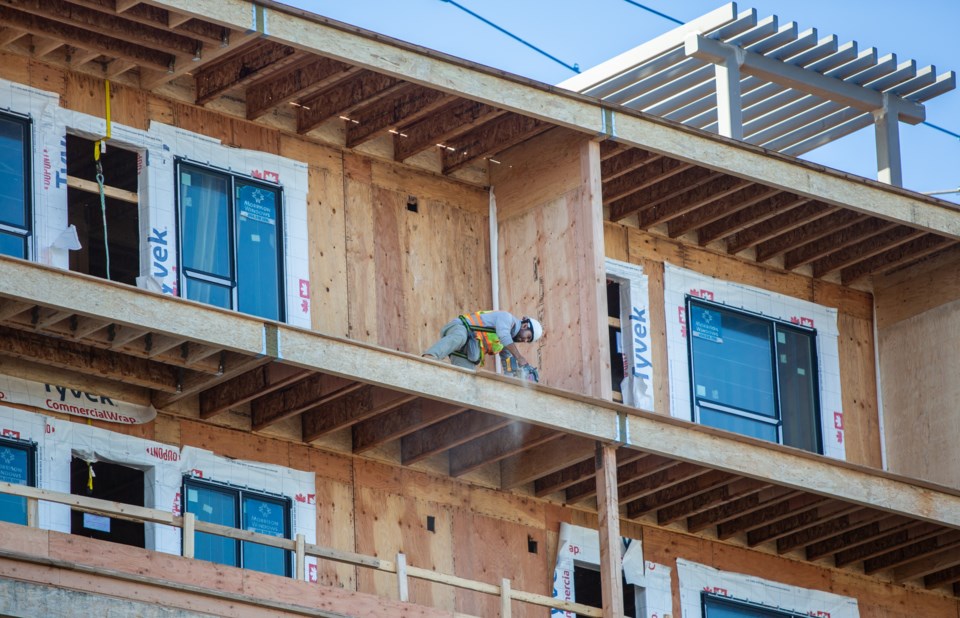World
Vancouver Achieves 85% of Provincial Housing Target by 2028

Vancouver has successfully reached 85% of its housing target set by the provincial government of British Columbia. This milestone reflects the city’s ongoing efforts to address housing shortages and improve affordability. The deadline for completing the remaining units is set for 2028, with city officials expressing confidence in their ability to meet this objective.
The provincial target, established as part of a broader housing affordability strategy, aims to facilitate the construction of more housing units to accommodate the growing population. Vancouver has prioritized urban development initiatives to ensure that a diverse range of housing options is available. The city council has been actively working to streamline the approval processes for new projects, which has contributed significantly to the progress made thus far.
According to city officials, the focus on increasing the number of completed housing units will not only help mitigate the local housing crisis but also support the overall economic growth of the region. The city has seen a notable rise in construction activity, indicating a robust response from developers to the growing demand for housing.
As of now, the city has delivered approximately 20,000 new housing units since the inception of the provincial target. This includes a mix of affordable housing, rental units, and market-rate properties. City officials believe that maintaining this momentum will be crucial as they approach the final years leading up to the 2028 deadline.
Strategies for Continued Success
To sustain the current growth rate, the City of Vancouver is implementing various strategies aimed at enhancing the housing supply. Key among these is the collaboration with local developers to identify suitable sites for new projects while ensuring that community input is considered. This approach aims to balance the needs of residents with the urgent demand for more housing.
Additionally, the city has allocated funds to improve infrastructure in developing neighborhoods. This investment in roads, transit, and public amenities is expected to make new housing developments more attractive, thereby encouraging further investment from private developers.
Local stakeholders have expressed support for these initiatives, emphasizing the importance of affordable housing. The ongoing dialogue between the city, developers, and community leaders is seen as crucial to addressing the complex challenges of housing availability and affordability.
Looking Ahead
As Vancouver approaches the 2028 deadline, the focus remains on ensuring that the remaining housing units are completed on time. The city’s proactive measures, along with supportive policies from the provincial government, are viewed as essential to achieving this goal.
Vancouver’s progress serves as a potential model for other cities grappling with similar housing challenges. By prioritizing collaboration and community engagement, the city aims to create a sustainable and inclusive housing market that meets the diverse needs of its residents. The commitment to achieving the housing target reflects a significant step towards enhancing the quality of life for all Vancouverites.
-

 Science3 months ago
Science3 months agoToyoake City Proposes Daily Two-Hour Smartphone Use Limit
-

 Top Stories3 months ago
Top Stories3 months agoPedestrian Fatally Injured in Esquimalt Collision on August 14
-

 Health3 months ago
Health3 months agoB.C. Review Reveals Urgent Need for Rare-Disease Drug Reforms
-

 Technology3 months ago
Technology3 months agoDark Adventure Game “Bye Sweet Carole” Set for October Release
-

 World3 months ago
World3 months agoJimmy Lai’s Defense Challenges Charges Under National Security Law
-

 Lifestyle3 months ago
Lifestyle3 months agoVictoria’s Pop-Up Shop Shines Light on B.C.’s Wolf Cull
-

 Technology3 months ago
Technology3 months agoKonami Revives Iconic Metal Gear Solid Delta Ahead of Release
-

 Technology3 months ago
Technology3 months agoApple Expands Self-Service Repair Program to Canada
-

 Technology3 months ago
Technology3 months agoSnapmaker U1 Color 3D Printer Redefines Speed and Sustainability
-

 Technology3 months ago
Technology3 months agoAION Folding Knife: Redefining EDC Design with Premium Materials
-

 Business3 months ago
Business3 months agoGordon Murray Automotive Unveils S1 LM and Le Mans GTR at Monterey
-

 Technology3 months ago
Technology3 months agoSolve Today’s Wordle Challenge: Hints and Answer for August 19









